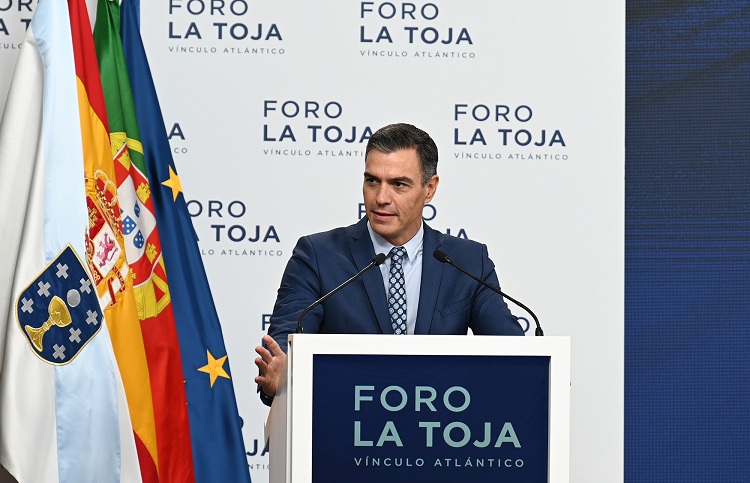The Diplomat
The President of the Government, Pedro Sánchez, announced yesterday, during the closing ceremony of the Forum La Toja, the approval of the new strategic project En Español- Valle de la Lengua, a joint initiative of the Riojan Executive and the Ministry of Foreign Affairs to promote the language as an element of development and tourist attraction.
“Spanish, Castilian, known outside our borders with 600 million people who are part of the Spanish-speaking community, has enormous economic potential,” said Sánchez. Therefore, “it is time to invest in all the potential that our common language has” in aspects such as the generation of qualified employment and the creation of value and industrial development, he added.
The Minister of Foreign Affairs, José Manuel Albares, received the President of the Government of La Rioja, Concha Andreu, in Madrid in early September with the aim of jointly promoting the Valle de la Lengua initiative, whose objective is to take advantage of the importance of the Spanish language as a source of growth. Among its main measures, the project proposes the creation of a technological platform for learning Spanish in person or virtually, the promotion of language tourism in the so-called “cradle of Spanish”, the monasteries of San Millán de la Cogolla (World Heritage Site), and the setting up of a digital business park around the language.
On the other hand, Pedro Sánchez, who coincided in the same closing ceremony with the Prime Minister of Portugal, António Costa, yesterday advocated the creation of “synergies” between the two Iberian countries in the framework of the Strategic Projects for Economic Recovery and Transformation (PERTE).
For his part, António Costa said during his speech that Portugal and Spain have “the potential to become an important gateway to the European continent for energy supply routes, international maritime trade and digital connectivity”, but, he warned, “for Portugal and Spain to truly act as Atlantic gateways to Europe, it is essential that we strengthen our own ties, strengthen our border regions and develop connectivity between us”.
“The last three Portuguese-Spanish summits have focused on the construction of a Common Cross-Border Development Strategy, which we approved in Guarda last year,” since “the development of border regions is a condition for us to overcome the demographic challenge and enhance the value of the hinterland,” he continued.
According to Costa, “Portugal and Spain have a historic responsibility to use their global vision to shape the European Union’s relationship with the Atlantic area” and to serve as “a point of union for a Europe open to the entire Atlantic, against all continental and protectionist currents on both sides of the ocean.







